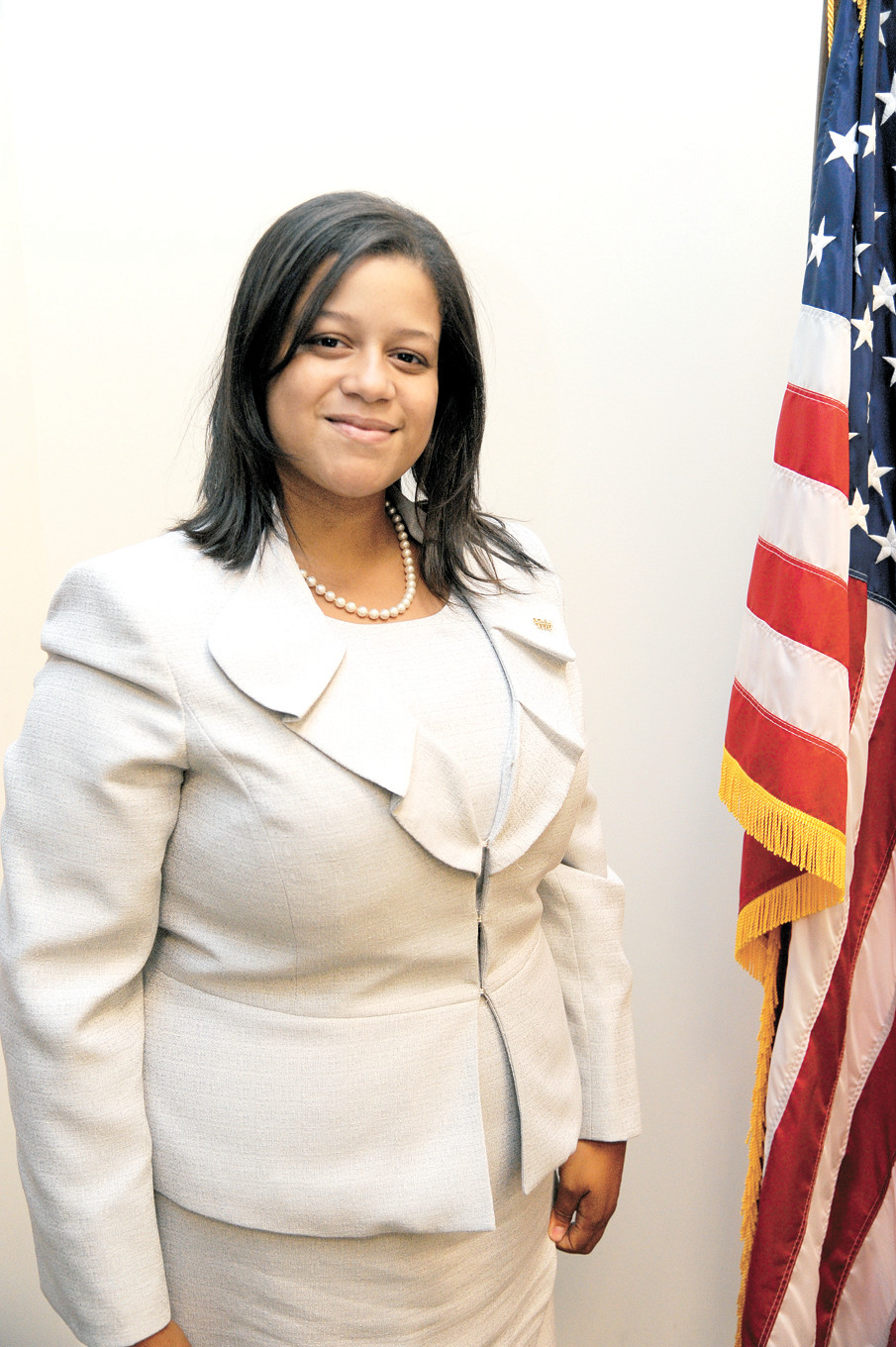Too scared to seek justice
ICE arrests at courthouses have chilling effect on undocumented
As immigration lawyer Elise Damas headed into work on the morning of June 26, she had a quick meeting with a client. The man asked Damas, of the Village of Hempstead’s Central American Refugee Center, to accompany him to pick up his certificate of disposition from the courthouse a few blocks away. Damas tried explaining to the man that he didn’t need representation to get the document, but he pleaded for her to come with him anyway.
“He said, ‘No, I can’t go by myself because I hear they’re arresting everyone,’” Damas recounted.
The man was referring to Immigration and Customs Enforcement agents. Nationwide, ICE has ramped up its arrests at courthouses, and in New York, the number of ICE arrests at courts rose from 11 in 2016 to 139 in 2017, according to the Immigrant Defense Project, an immigration advocacy group. That number was expected to rise again this year after ICE Director Thomas Homan signed a policy directive in January instructing ICE agents in the methods of arresting undocumented immigrants who appear at courthouses.
State Assemblywoman Michaelle Solages, a Democrat of Valley Stream, said that this policy, and the White House’s anti-immigrant rhetoric, have caused a “chilling effect,” leaving undocumented immigrants too afraid to go to court because they might be deported. In response, Solages introduced the Protect Our Courts Act in the State Legislature last month.
“This bill would prohibit ICE from making civil arrests and require them to get a judicial warrant if they want to arrest someone at a courthouse,” Solages said.
She hopes that the bill, A.11013, which did not pass in the legislative session just ended, will give some measure of comfort to immigrants and allow them to resume participating in New York’s criminal justice system. A 2017 survey conducted by the IDP showed that 75 percent of legal service providers in New York had clients who were afraid to go to court because of ICE, and 29 percent had clients who refused to attend court. By denying people’s day in court and scaring them from attending, ICE’s policy is effectively interfering with people’s Fourth Amendment rights.
“Every person in America has the right to due process . . . but this administration’s use of ICE as a blunt tool is treading on the Constitution of the state and federal government,” she said.
Representatives of ICE did not respond to a request for comment by press time.
Elizabeth Tonne-Daims, an immigration unit attorney for the Legal Aid Society of Nassau County, said she was in favor of the bill. Given the Nassau County Police Department’s policy of handing over undocumented immigrants to ICE whenever it is asked, Tonne-Daims explained that immigrants are now afraid of law enforcement throughout New York. Her colleagues in New York City even shared stories with her about clients too afraid to testify against abusers in court because they worried about being arrested by ICE.
“We’ve had people experience domestic violence, and the abusers or family of the abusers have threatened the victims with more violence and threats if the victim reports them,” said Silvia Pastor-Finkelstein, director of immigrant affairs for the Nassau County district attorney’s office.
In 2016, Pastor-Finkelstein’s office received more than 70 reports on its hotline, but in 2017, it received only three calls. She said that the spread of rhetoric and policies that scare undocumented immigrants away from the
district attorney and other law enforcement offices allow abusers to take advantage of the immigrant community. “It’s a case of society giving criminals the tools to continue their crimes,”
she said.
Tonne-Daims is working to get Nassau D.A. Madeline Singas to voice her support for the act. Already, several other district attorneys in New York City have said that ICE’s policy interferes with the court system. Brooklyn D.A. Eric Gonzalez said in a statement that local immigrants were deterred from cooperating with courts after a Brooklyn man, who had testified during a murder trial, was arrested and deported as he left the courthouse.
“We encounter more and more victims and eyewitnesses to crimes who are fearful of moving forward because of immigration status,” Gonzalez said, “and we see arrests by ICE spiking in our courthouses, including Family Court and courts dedicated to helping human trafficking victims and those with mental health issues.”
Gonzalez is supporting the bill, which will be debated in the Assembly next year. Despite the effects of the midterm elections this fall, Solages said she believed the bill could still pass in the Assembly next session, because she had secured 60 cosponsors for it. She said the real battle would be in the Senate, but she hoped senators could agree that ICE’s policy is damaging New York’s court system.
“ICE has gone after people who had been exonerated, who were walking out free from court and now find themselves getting arrested and deported,” Solages said. “This is un-American, cruel and inhumane.”







